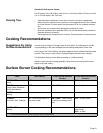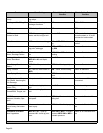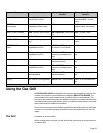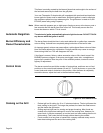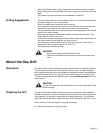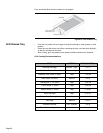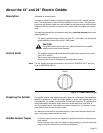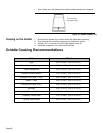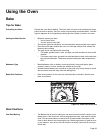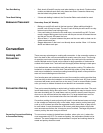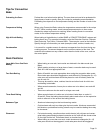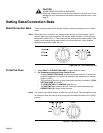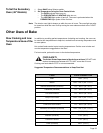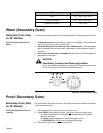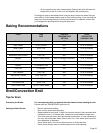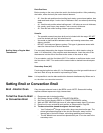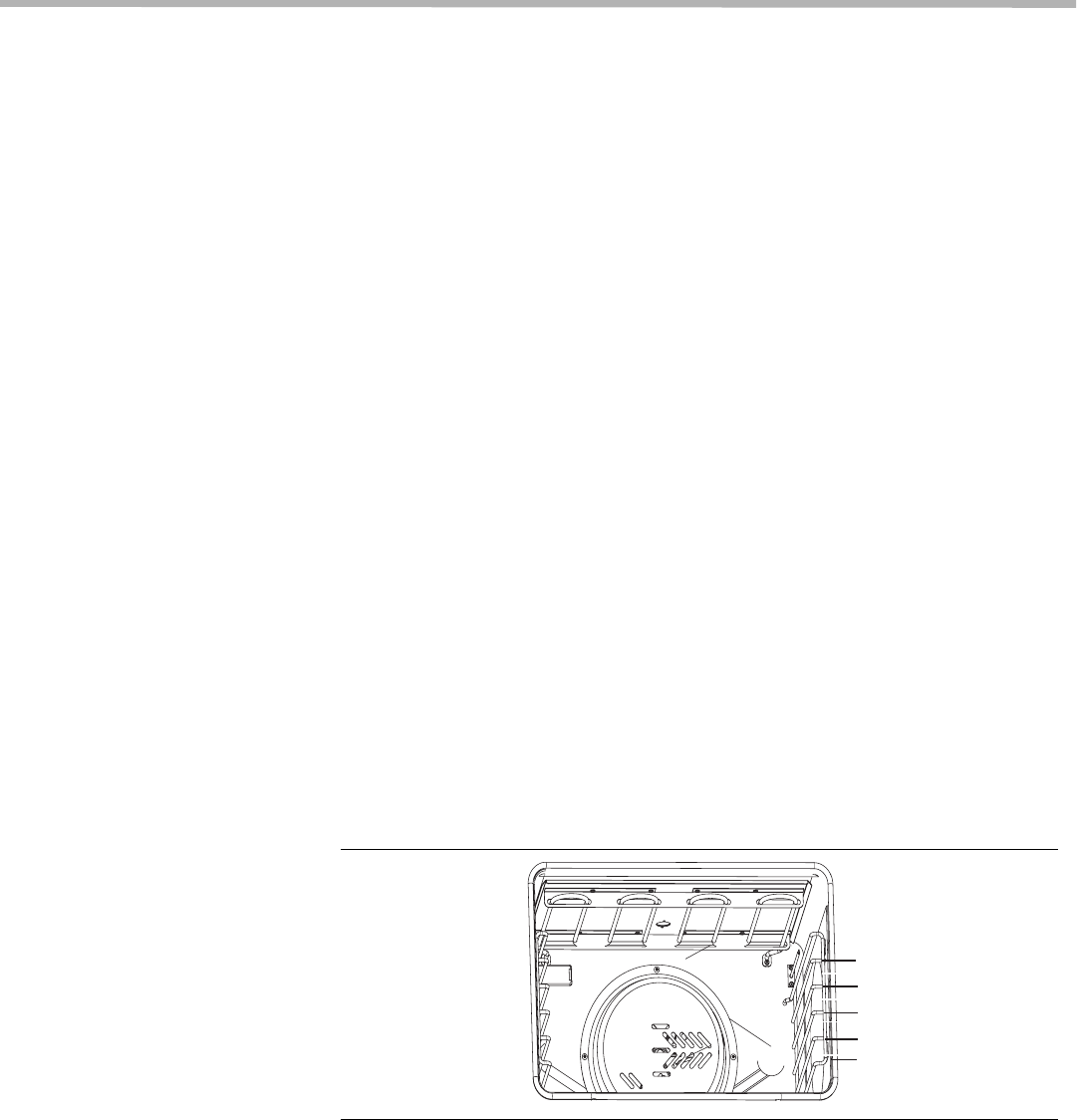
Page 29
Using the Oven
Bake
Tips for Bake
Preheating the Oven Preheat the oven before baking. The oven does not need to be preheated for large
pieces of meat or poultry. See your recipe for preheating recommendation. Preheat-
ing time depends on the temperature setting and the number of racks in the oven.
Getting the Best Results • Minimize opening the door:
• Use a minute timer.
• Use the interior oven light.
• Choose the right size bakeware; use the bakeware recommended in the recipe.
• Store the broiler pans outside the oven. An extra pan without food, affects the
browning and cooking.
• The type of pan used affects the browning:
• For tender, golden brown crusts, use light non-stick/anodized or shiny metal
utensils.
• For brown crisp crusts, use dark non-stick/anodized or dark, dull metal uten-
sils or glass bakeware. These may require lowering the bake temperature
25°F.
Bakeware Type • Metal bakeware (with or without a non-stick finish), heat-proof glass, glass-
ceramic, pottery, or other utensils are suitable for the oven.
• Suitable cookie sheets have a small lip on one side only. Heavy sheets or those
with more than one side may affect the baking time.
Bake Rack Positions • Rack level positions in the oven are numbered like an elevator. Number one
level is the lowest.
Rack Positions
One Rack Baking • The Bake mode is best for baking on one rack with rack level #3 used for most
baked items. If the item is tall, such as an angel food cake, rack level #2 may be
used. Pies are best baked on rack level #2 to make certain the bottom of the
crust is done without over browning the top. When large pieces of meat or poul-
try are roasted , such as a prime rib of beef or a turkey, rack level #2 is the pre-
ferred rack.
Figure 19: Oven Rack Positions
5
4
3
2
1



